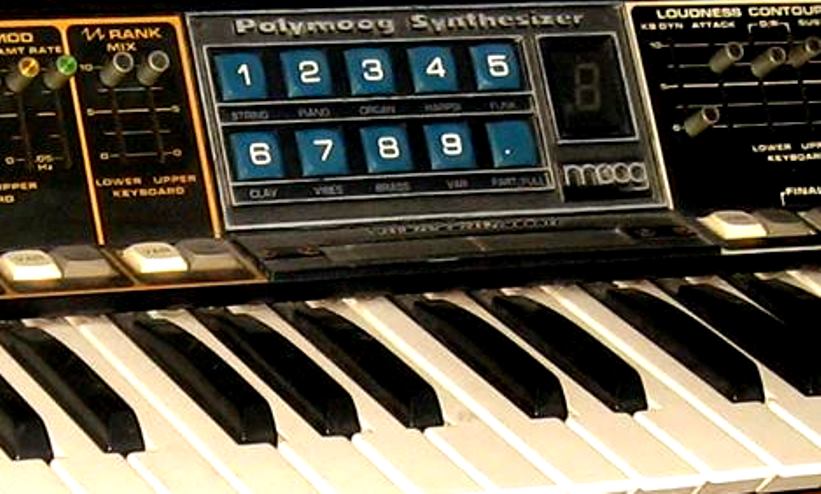
At the dawn of synth, rock musicians were not usually welcoming of the instrument and acted with hostility towards what was considered an inauthentic sound, an attitude that continued into punk and to an extent still prevails today among music purists.
But changes in attitudes were afoot with Pete Townshend’s use of the EMS VCS3 and ARP 2500 on the ‘Who’s Next’ album in 1971 while with the availability of the Minimoog, keyboard players like Rick Wakeman and Keith Emerson found a new tool of expression. Then there was ROXY MUSIC featuring Brian Eno who often didn’t bother with the keyboard, twisting knobs and using the joystick on his VCS3 instead.
PINK FLOYD took the experimental rock ethos further by using the built-in digital sequencer of the EMS Synthi AKS for the throbbing instrumental ‘On The Run’ from ‘Dark Side Of The Moon’ released in 1973; Roger Waters was adamant that this was about “using the tools that are available when they’re available” because “here are all kinds of electronic goodies that are available for people like us to use if we can be bothered, and we can be bothered…”
However, it wasn’t until the success of KRAFTWERK and then later, the productions of Giorgio Moroder that there came a new form in electronic pop, with synths as the alternative dominant melodic instrument to the electric guitar, that led to the post-punk emergence of THE HUMAN LEAGUE, ULTRAVOX, TUBEWAY ARMY, OMD and many more.
This list captures the occasions when more conventionally inclined acts entered the murky world of synths, sequencers and drum machines. However, those artists perceived to have a strong association and history with the synthesizer such as SPARKS, JOY DIVISION, NEW ORDER, ASSOCIATES, SIMPLE MINDS, SPANDAU BALLET, LCD SOUNDSYSTEM and WHITE LIES have not been included.
Presented in yearly and then alphabetical order, here are ELECTRICITYCLUB.CO.UK’s 25 choices from across the decades…
SQUEEZE Take Me I’m Yours (1978)
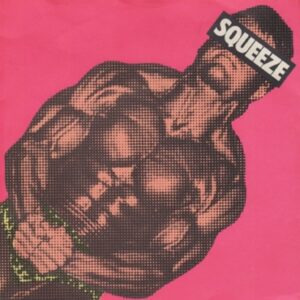 Although the debut single by SQUEEZE, ‘Take Me I’m Yours’ is now something an outlier both from the punky style of the self-titled parent album and the later classic songs of Chris Difford and Glenn Tilbrook. The use of squelchy synths, and drum machine pointed towards KRAFTWERK and the Doppler sweep section of ‘Trans Europe Express’ in particular; “We hired lots of synths and a bloke who knew how to work them” explained Tilbrook.
Although the debut single by SQUEEZE, ‘Take Me I’m Yours’ is now something an outlier both from the punky style of the self-titled parent album and the later classic songs of Chris Difford and Glenn Tilbrook. The use of squelchy synths, and drum machine pointed towards KRAFTWERK and the Doppler sweep section of ‘Trans Europe Express’ in particular; “We hired lots of synths and a bloke who knew how to work them” explained Tilbrook.
Available on the SQUEEZE album ‘Greatest Hits’ via A&M Records
http://www.squeezeofficial.com/
MARIANNE FAITHFULL The Ballad Of Lucy Jordan (1979)
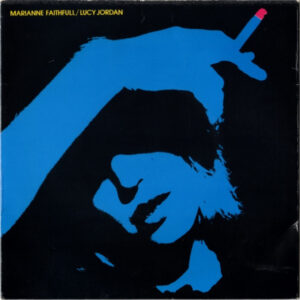 Originally recorded in 1974 by DR HOOK in a country style, ‘The Ballad of Lucy Jordan’ was given a pulsing electronic treatment by producer Mark Miller Mundy and Steve Winwood. The arrangement suited Marianne Faithfull’s now raucous deep voice, the result of years of alcohol and substance abuse. It was a far cry from the sweet folkie melodicism of early records like ‘As Tears Go By’ but her art reflected the fractured pain of her life.
Originally recorded in 1974 by DR HOOK in a country style, ‘The Ballad of Lucy Jordan’ was given a pulsing electronic treatment by producer Mark Miller Mundy and Steve Winwood. The arrangement suited Marianne Faithfull’s now raucous deep voice, the result of years of alcohol and substance abuse. It was a far cry from the sweet folkie melodicism of early records like ‘As Tears Go By’ but her art reflected the fractured pain of her life.
Available on the MARIANNE FAITHFULL album ‘Broken English’ via Island Records
http://www.mariannefaithfull.org.uk/
JONA LEWIE You’ll Always Find Me in the Kitchen At Parties (1980)
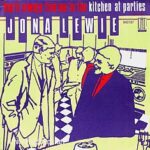 Best known for his brass band anti-war hit ‘Stop The Cavalry’, John Lewis took the stage name Jona Lewie for his solo career to avoid confusion with a jazz musician; With his early roots as a blues and boogie-woogie pianist, ‘You’ll Always Find Me in the Kitchen At Parties was a departure’; written on a Polymoog, the synth-laden backdrop suited the dead pan tale of a shy and reluctant party-goer who eventually meets his soulmate.
Best known for his brass band anti-war hit ‘Stop The Cavalry’, John Lewis took the stage name Jona Lewie for his solo career to avoid confusion with a jazz musician; With his early roots as a blues and boogie-woogie pianist, ‘You’ll Always Find Me in the Kitchen At Parties was a departure’; written on a Polymoog, the synth-laden backdrop suited the dead pan tale of a shy and reluctant party-goer who eventually meets his soulmate.
Available on the JONA LEWIE album ‘The Best Of’ via Union Square Music
PAUL McCARTNEY Temporary Secretary (1980)
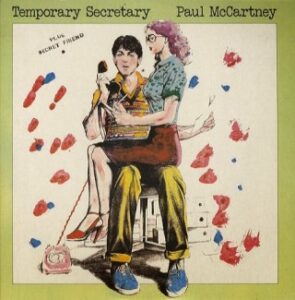 Having explored art funk on ‘Coming Up’ and impersonated Ron Mael from SPARKS in its video, Macca got inquisitive and went electronic with the quite bizarre ‘Temporary Secretary’. With prominent sequencer patterns to simulate a typewriter and detached deadpan vocals, this oddball experiment confused fans. Self-produced, the single was issued on 12 inch to accommodate a 10 minute B-side ‘Secret Friend’.
Having explored art funk on ‘Coming Up’ and impersonated Ron Mael from SPARKS in its video, Macca got inquisitive and went electronic with the quite bizarre ‘Temporary Secretary’. With prominent sequencer patterns to simulate a typewriter and detached deadpan vocals, this oddball experiment confused fans. Self-produced, the single was issued on 12 inch to accommodate a 10 minute B-side ‘Secret Friend’.
Available on the PAUL McCARTNEY album ‘McCartney II’ via EMI Records
ROBERT PALMER Johnny & Mary (1980)
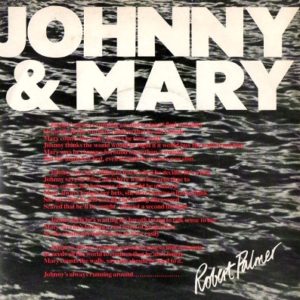 Having made his name in blues rockers VINEGAR JOE, for his sixth solo album ‘Clues’, Robert Palmer had fallen under the spell of Gary Numan and JAPAN. The lead single ‘Johnny & Mary’ showcased some pulsing electronics and remains something of cult favourite despite not being a Top40 hit in the UK. It was later covered in a sax-led arrangement for the ‘Papa et Nicole’ Renault adverts while Palmer would return to rock.
Having made his name in blues rockers VINEGAR JOE, for his sixth solo album ‘Clues’, Robert Palmer had fallen under the spell of Gary Numan and JAPAN. The lead single ‘Johnny & Mary’ showcased some pulsing electronics and remains something of cult favourite despite not being a Top40 hit in the UK. It was later covered in a sax-led arrangement for the ‘Papa et Nicole’ Renault adverts while Palmer would return to rock.
Available on the ROBERT PALMER album ‘Clues’ via Island Records
SIOUXSIE & THE BANSHEES Red Light (1980)
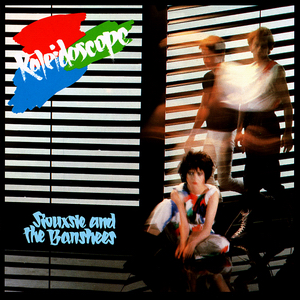 By 1980, SIOUXSIE & THE BANSHEES had fragmented and were in an interim period without a permanent guitarist which pushed the then-trio into various modes of musical experimentation. Featuring a Roland Compurhythm and a camera shutter motor rewind as its backbeat, the minimal ‘Red Light’ was dominated by ominous synth played by Steve Severin to evoke a smoky club atmosphere.
By 1980, SIOUXSIE & THE BANSHEES had fragmented and were in an interim period without a permanent guitarist which pushed the then-trio into various modes of musical experimentation. Featuring a Roland Compurhythm and a camera shutter motor rewind as its backbeat, the minimal ‘Red Light’ was dominated by ominous synth played by Steve Severin to evoke a smoky club atmosphere.
Available on the SIOUXSIE & THE BANSHEES album via Polydor
http://siouxsieandthebanshees.co.uk
GODLEY & CREME Under Your Thumb (1981)
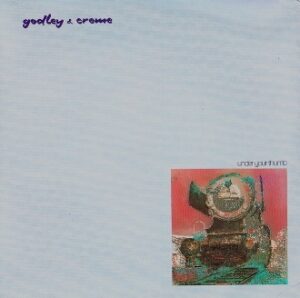 Kevin Godley and Lol Creme left 10CC in 1976 after two No1s; the experimentally included pair surprised on their second album ‘ISMISM’ with a haunting electronic ballad ‘Under Your Thumb’. With its gentle locomotive backbone, while the song about the ghost of a suicidal woman sat with the then-vogue for synth, one person not impressed was Billy Currie of ULTRAVOX who named it as his “Most Hated Record” in Smash Hits.
Kevin Godley and Lol Creme left 10CC in 1976 after two No1s; the experimentally included pair surprised on their second album ‘ISMISM’ with a haunting electronic ballad ‘Under Your Thumb’. With its gentle locomotive backbone, while the song about the ghost of a suicidal woman sat with the then-vogue for synth, one person not impressed was Billy Currie of ULTRAVOX who named it as his “Most Hated Record” in Smash Hits.
Available on the album ‘Cry: The Very Best Of’ via Polydor / Universal Music
https://www.discogs.com/artist/104312-Godley-Creme
PHIL LYNOTT Yellow Pearl – Remix (1981)
 Phil Lynott frequented The Blitz Club and ‘Yellow Pearl’ was a co-composition with Midge Ure which began life during THIN LIZZY soundchecks. Rusty Egan played drums while Billy Currie added more synths on the remix which became the ‘Top Of The Pops’ theme. ‘Yellow Pearl’ was so draped in the involvement of VISAGE members that it was almost forgotten that this was the frontman of a heavy rock band!
Phil Lynott frequented The Blitz Club and ‘Yellow Pearl’ was a co-composition with Midge Ure which began life during THIN LIZZY soundchecks. Rusty Egan played drums while Billy Currie added more synths on the remix which became the ‘Top Of The Pops’ theme. ‘Yellow Pearl’ was so draped in the involvement of VISAGE members that it was almost forgotten that this was the frontman of a heavy rock band!
Available on the THIN LIZZY album ‘Greatest Hits’ via Universal Music
http://www.thinlizzy.org/phil.html
BILL NELSON Living In My Limousine (1981)
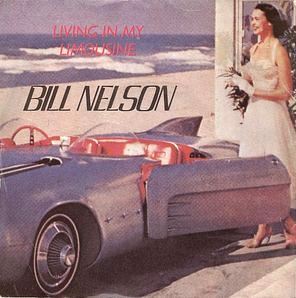 After BE BOP DELUXE, guitar virtuoso Nelson formed RED NOISE in 1978 with a more electronic focus. But when Nelson recorded the decisively Bowie-esque ‘Quit Dreaming & Get On The Beam’, his label Harvest refused to release it. Nelson bought the unreleased songs for his own label, Cocteau. A solo single ‘Do You Dream In Colour?’ gained radio play and the album was released by Mercury Records; ‘Living In My Limousine’ with its Numanesque detachment was one of the highlights.
After BE BOP DELUXE, guitar virtuoso Nelson formed RED NOISE in 1978 with a more electronic focus. But when Nelson recorded the decisively Bowie-esque ‘Quit Dreaming & Get On The Beam’, his label Harvest refused to release it. Nelson bought the unreleased songs for his own label, Cocteau. A solo single ‘Do You Dream In Colour?’ gained radio play and the album was released by Mercury Records; ‘Living In My Limousine’ with its Numanesque detachment was one of the highlights.
Available on the BILL NELSON album ‘Quit Dreaming & Get On The Beam’ via Mercury Records
PETE SHELLEY Homosapien (1981)
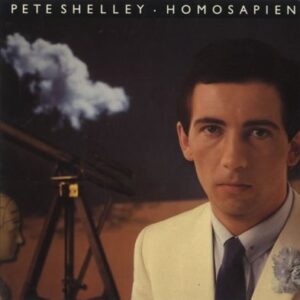 ‘Homosapien’ came about after the aborted fourth BUZZCOCKS album; producer Martin Rushent suggested to frontman Pete Shelley that they should work using the latest electronic equipment. Seen as Shelley’s coming out song, synths and 12 string guitar combined for a wonderful futuristic snarl. The lyric “Homo Superior in my interior” got the song a Radio1 ban and while it was recorded before THE HUMAN LEAGUE’s ‘Dare’, the parent album was not issued until 1982.
‘Homosapien’ came about after the aborted fourth BUZZCOCKS album; producer Martin Rushent suggested to frontman Pete Shelley that they should work using the latest electronic equipment. Seen as Shelley’s coming out song, synths and 12 string guitar combined for a wonderful futuristic snarl. The lyric “Homo Superior in my interior” got the song a Radio1 ban and while it was recorded before THE HUMAN LEAGUE’s ‘Dare’, the parent album was not issued until 1982.
Available on the PETE SHELLEY album ‘Homosapien’ via Active Distribution Ltd
DAVE STEWART & BARBARA GASKIN It’s My Party (1981)
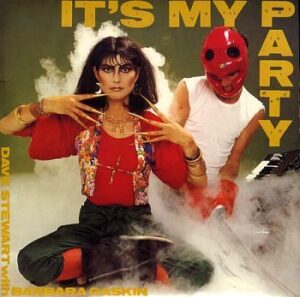 Keyboardist Dave Stewart, once of prog rockers HATFIELD & THE NORTH recruited friend and backing vocalist Barbara Gaskin to sing on the second of his electronic pop covers, the first being ‘What Becomes Of The Broken Hearted’ with Colin Blunstone. Made famous by Lesley Gore, their inventively oddball synth version of ‘It’s My Party’ was a triumph and a worldwide hit which reached No1 in the UK and Germany.
Keyboardist Dave Stewart, once of prog rockers HATFIELD & THE NORTH recruited friend and backing vocalist Barbara Gaskin to sing on the second of his electronic pop covers, the first being ‘What Becomes Of The Broken Hearted’ with Colin Blunstone. Made famous by Lesley Gore, their inventively oddball synth version of ‘It’s My Party’ was a triumph and a worldwide hit which reached No1 in the UK and Germany.
Available on the album ‘Up From The Dark’ via Broken Records
BIG COUNTRY Flag Of Nations (1982)
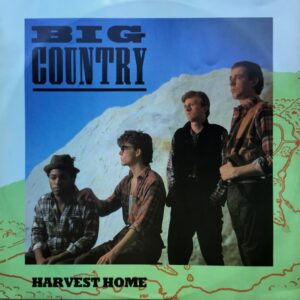 While known for their e-bowed guitars sounding like bagpipes on rock anthems such as ‘Fields Of Fire’ and ‘In A Big Country’, the 12 inch B-side to their first single ‘Harvest Home’, ‘Flag Of Nations’ was a blippy electronic instrumental. Sounding like a cross between DAF and NEW ORDER, it was constructed by Stuart Adamson and Bruce Watson around a sequencer belonging to producer John Leckie and a drum machine.
While known for their e-bowed guitars sounding like bagpipes on rock anthems such as ‘Fields Of Fire’ and ‘In A Big Country’, the 12 inch B-side to their first single ‘Harvest Home’, ‘Flag Of Nations’ was a blippy electronic instrumental. Sounding like a cross between DAF and NEW ORDER, it was constructed by Stuart Adamson and Bruce Watson around a sequencer belonging to producer John Leckie and a drum machine.
Available on the BIG COUNTRY deluxe album ‘The Crossing’ via Geffen Records
NEIL YOUNG Transformer Man (1982)
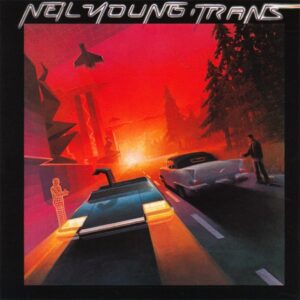 Between 1980-1982, Young was carrying out a therapy program for his young son Ben who had cerebral palsy. The music of KRAFTWERK reflected Young’s attempts to communicate with his son. Acquiring a Vocoder, Synclavier and LinnDrum Computer, while much of the ‘Trans’ album did not work, there was an ethereal ‘Neon Lights’ beauty in ‘Transformer Man’. For his troubles, Young was sued by his label Geffen Records for “deliberately uncommercial and unrepresentative work”!
Between 1980-1982, Young was carrying out a therapy program for his young son Ben who had cerebral palsy. The music of KRAFTWERK reflected Young’s attempts to communicate with his son. Acquiring a Vocoder, Synclavier and LinnDrum Computer, while much of the ‘Trans’ album did not work, there was an ethereal ‘Neon Lights’ beauty in ‘Transformer Man’. For his troubles, Young was sued by his label Geffen Records for “deliberately uncommercial and unrepresentative work”!
Available on the NEIL YOUNG album ‘Trans’ via Geffen Records
THE CURE The Walk (1983)
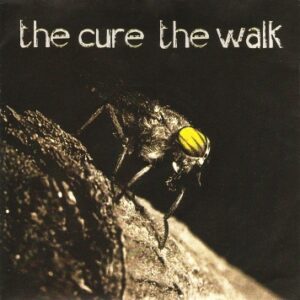 Following the deathly album ‘Pornography’, bassist Simon Gallup had left THE CURE, while Lol Tolhurst switched from drums to keyboards and Robert Smith lightened up considerably to come up with the perky ‘Let’s Go To Bed’. The follow-up ‘The Walk’ brought in Steve Nye as producer in a full Oberheim blow out, using the American manufacturers OB8, DMX and DSX with the track sounding very similar to NEW ORDER’s ‘Blue Monday’ which used the same drum machine.
Following the deathly album ‘Pornography’, bassist Simon Gallup had left THE CURE, while Lol Tolhurst switched from drums to keyboards and Robert Smith lightened up considerably to come up with the perky ‘Let’s Go To Bed’. The follow-up ‘The Walk’ brought in Steve Nye as producer in a full Oberheim blow out, using the American manufacturers OB8, DMX and DSX with the track sounding very similar to NEW ORDER’s ‘Blue Monday’ which used the same drum machine.
Available on THE CURE album ‘Japanese Whispers’ via Fiction Records
FREEEZ IOU (1983)
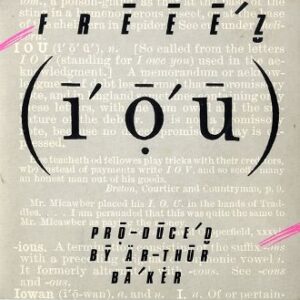 Following their 1980 hit ‘Southern Freeez’, jazz funksters FREEEZ had fragmented to a duo. Fascinated by the urban electro hybrid of Afrika Bambaataa’s ‘Planet Rock’ produced by Arthur Baker, they jetted off to meet him in New York where he suggested recording his self-penned ‘IOU’. The similarity of the rhythms to‘Planet Rock’ and NEW ORDER’s ‘Confusion’ can be explained by the same programs on Baker’s Roland TR808 being used.
Following their 1980 hit ‘Southern Freeez’, jazz funksters FREEEZ had fragmented to a duo. Fascinated by the urban electro hybrid of Afrika Bambaataa’s ‘Planet Rock’ produced by Arthur Baker, they jetted off to meet him in New York where he suggested recording his self-penned ‘IOU’. The similarity of the rhythms to‘Planet Rock’ and NEW ORDER’s ‘Confusion’ can be explained by the same programs on Baker’s Roland TR808 being used.
Available on the FREEEZ album ‘Gonna Get You’ via Cherry Red
https://www.facebook.com/JohnRocca.MuziK
QUEEN I Want To Break Free (1984)
 QUEEN used to declare “no synthesizers” on their albums, but by 1980’s ‘The Game’, an Oberheim OBX entered the ranks. Recording ‘I Want To Break Free’ had been tense, due to writer and bass player John Deacon’s insistence that the guitar solo had to be played on a Roland Jupiter 8 by session musician Fred Mandel. For its single release, the Linn Drum driven song was extended to include more synth in the intro and the bridge after the solo, emotively enhancing the less synthy album cut.
QUEEN used to declare “no synthesizers” on their albums, but by 1980’s ‘The Game’, an Oberheim OBX entered the ranks. Recording ‘I Want To Break Free’ had been tense, due to writer and bass player John Deacon’s insistence that the guitar solo had to be played on a Roland Jupiter 8 by session musician Fred Mandel. For its single release, the Linn Drum driven song was extended to include more synth in the intro and the bridge after the solo, emotively enhancing the less synthy album cut.
Available on the QUEEN album ‘Greatest Hits II’ via EMI Music
ECHO & THE BUNNYMEN Bring On The Dancing Horses (1985)
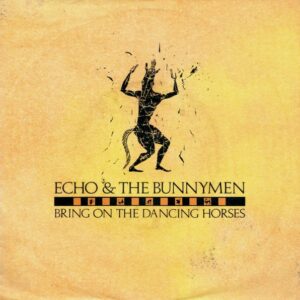 Despite its psychedelic haze, ‘Bring On The Dancing Horses’ was notable for its use of DX7s and a Prophet, programmed drums, AMS sampled bass, as well as guitar samples sequenced on the Emulator. All helmed by the producer of the moment Laurie Latham, this was as synth and pop as ECHO & THE BUNNYMEN got. Included on the soundtrack to ‘Pretty In Pink’, the song introduced the band to a new young American audience.
Despite its psychedelic haze, ‘Bring On The Dancing Horses’ was notable for its use of DX7s and a Prophet, programmed drums, AMS sampled bass, as well as guitar samples sequenced on the Emulator. All helmed by the producer of the moment Laurie Latham, this was as synth and pop as ECHO & THE BUNNYMEN got. Included on the soundtrack to ‘Pretty In Pink’, the song introduced the band to a new young American audience.
Available on the ECHO & THE BUNNYMEN album ‘The Killing Moon – The Singles 1980-1990’ via Warner Music
LEONARD COHEN First We Take Manhattan (1988)
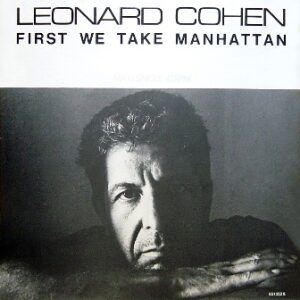 Originally recorded by Jennifer Warnes in 1985, the doom laden Canadian poet recorded his own sinsister synth interpretation. Tightly produced with sequenced digital slap bass, Linn Drum and sombre synth sweeps, ‘First We Take Manhattan’ was Cohen’s commentary on terrorism where “there are no alibis or no compromises”. Contrasting with a soulful bridge from Anjani Thomas, it made Cohen’s vocal even more resonant.
Originally recorded by Jennifer Warnes in 1985, the doom laden Canadian poet recorded his own sinsister synth interpretation. Tightly produced with sequenced digital slap bass, Linn Drum and sombre synth sweeps, ‘First We Take Manhattan’ was Cohen’s commentary on terrorism where “there are no alibis or no compromises”. Contrasting with a soulful bridge from Anjani Thomas, it made Cohen’s vocal even more resonant.
Available on the LEONARD COHEN album ‘I’m Your Man’ via Sony Music
MANIC STREET PREACHERS The Love of Richard Nixon (2004)
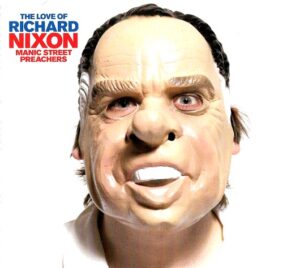 ‘The Love of Richard Nixon’ was the MANIC STREET PREACHERS’s sympathetic appraisal of former US president Richard Nixon whose positive achievements were overshadowed by Watergate. Adding a twist with an elegiac electronic production with minimal guitars, the new direction was not popular with fans and seen a sign of the trio being stuck in a rut and fighting their own musical instincts.
‘The Love of Richard Nixon’ was the MANIC STREET PREACHERS’s sympathetic appraisal of former US president Richard Nixon whose positive achievements were overshadowed by Watergate. Adding a twist with an elegiac electronic production with minimal guitars, the new direction was not popular with fans and seen a sign of the trio being stuck in a rut and fighting their own musical instincts.
Available on the MANIC STREET PREACHERS album ‘Lifeblood’ via Sony Music
https://www.manicstreetpreachers.com/
KELLY OSBOURNE One Word (2005)
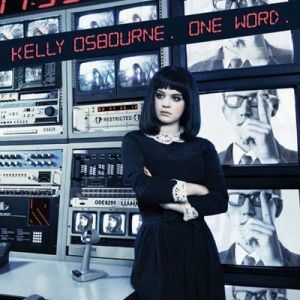 After her initial pop punk adventures, Ozzy’s youngest daughter surprised everyone with the classic synthpop of ‘One Word’ penned by 4 NON BLONDES’ Linda Perry. However, it was perhaps a little bit too classic sounding, with a more than passing resemblance to VISAGE’s ‘Fade to Grey’; it was so uncanny that legal action was launched. The matter was settled with Midge Ure, Billy Currie and Chris Payne each awarded a share of the royalties.
After her initial pop punk adventures, Ozzy’s youngest daughter surprised everyone with the classic synthpop of ‘One Word’ penned by 4 NON BLONDES’ Linda Perry. However, it was perhaps a little bit too classic sounding, with a more than passing resemblance to VISAGE’s ‘Fade to Grey’; it was so uncanny that legal action was launched. The matter was settled with Midge Ure, Billy Currie and Chris Payne each awarded a share of the royalties.
Available on the KELLY OSBORNE album ‘Sleeping In The Nothing’ via Sanctuary Records
THE KILLERS Human (2008)
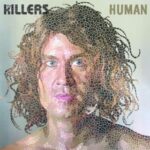 Synth was the rogue element of THE KILLERS’ debut album ‘Hot Fuss’, reflecting singer Brandon Flowers’ love of NEW ORDER and DURAN DURAN. It wasn’t until ‘Human’, co-produced by Stuart Price, that THE KILLERS came up with a true synthpop anthem. A soaring rework of the ALPHAVILLE’s ‘Forever Young’, the thundering motorik dancebeat confused their more rock-inclined fanbase, as did the Hunter S Thompson referencing refrain of “are we human or are we dancer?”.
Synth was the rogue element of THE KILLERS’ debut album ‘Hot Fuss’, reflecting singer Brandon Flowers’ love of NEW ORDER and DURAN DURAN. It wasn’t until ‘Human’, co-produced by Stuart Price, that THE KILLERS came up with a true synthpop anthem. A soaring rework of the ALPHAVILLE’s ‘Forever Young’, the thundering motorik dancebeat confused their more rock-inclined fanbase, as did the Hunter S Thompson referencing refrain of “are we human or are we dancer?”.
Available on THE KILLERS album ‘Direct Hits’ via Island Records
http://www.thekillersmusic.com/
EDITORS Papillon (2009)
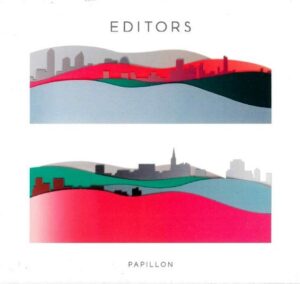 EDITORS first became known for sombre guitar-driven indie hits like ‘Munich’. With Flood at the production controls and Brad Fieldel’s theme for ‘The Terminator’ as an influence for their third album ‘In This Light & On This Evening’, The Birmingham band ventured into synths with the rhythmic and ominous ‘Papillon’, sounding like a cross between BLANCMANGE and NEW ORDER.
EDITORS first became known for sombre guitar-driven indie hits like ‘Munich’. With Flood at the production controls and Brad Fieldel’s theme for ‘The Terminator’ as an influence for their third album ‘In This Light & On This Evening’, The Birmingham band ventured into synths with the rhythmic and ominous ‘Papillon’, sounding like a cross between BLANCMANGE and NEW ORDER.
Available on the EDITORS album ‘In This Light & On This Evening’ via Kitchenware
http://www.editorsofficial.com/
JOHN GRANT New Age Sensitive Man (2013)
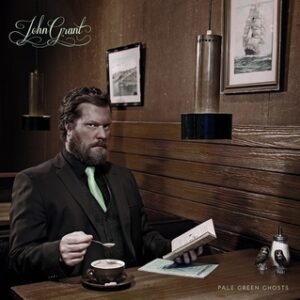 Coming from the more traditionally flavoured band THE CZARS, frontman John Grant sprung a major surprise with his second solo album ‘Pale Green Ghosts’ which was produced Biggi Veira of GUSGUS to herald a new electronic direction. “I wish I was a robot, like KRAFTWERK!” he said but despite its feisty dance tempo and throbbing synths, the angry heartfelt lyrics of ‘Sensitive New Age Guy’ dealt with the suicide of a friend.
Coming from the more traditionally flavoured band THE CZARS, frontman John Grant sprung a major surprise with his second solo album ‘Pale Green Ghosts’ which was produced Biggi Veira of GUSGUS to herald a new electronic direction. “I wish I was a robot, like KRAFTWERK!” he said but despite its feisty dance tempo and throbbing synths, the angry heartfelt lyrics of ‘Sensitive New Age Guy’ dealt with the suicide of a friend.
Available on the JOHN GRANT album ‘Pale Green Ghosts’ via Bella Union
LLOYD COLE Violins (2019)
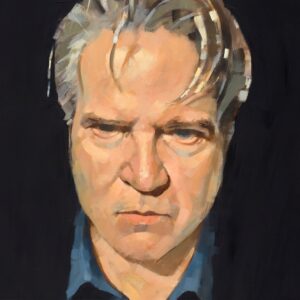 Lloyd Cole recorded an experimental electronic album ‘Selected Studies Vol 1’ with Hans-Joachim Roedelius of CLUSTER in 2013, while there was also a solo instrumental collection ‘1D Electronics 2012-2014’. He put that modular knowhow into a song based format on ‘Violins’ where guitars were “going, going but not quite gone”. However, they did made their presence felt in amongst all the machinery at the halfway point.
Lloyd Cole recorded an experimental electronic album ‘Selected Studies Vol 1’ with Hans-Joachim Roedelius of CLUSTER in 2013, while there was also a solo instrumental collection ‘1D Electronics 2012-2014’. He put that modular knowhow into a song based format on ‘Violins’ where guitars were “going, going but not quite gone”. However, they did made their presence felt in amongst all the machinery at the halfway point.
Available on the LLOYD COLE album ‘Guesswork’ via earMUSIC
BRYAN FERRY Featuring AMELIA BARRATT Star (2024)
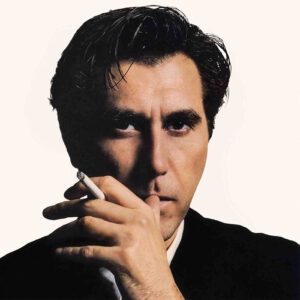 While ROXY MUSIC were very influential on artists of both a new romantic and synth persuasion, Bryan Ferry had yet to go the electronic hog himself despite previous collaborations with DJ Hell and Todd Terje. ‘Star’ began a sketch by Trent Reznor and Atticus Ross of NINE INCH NAILS but the idea was shelved for several years. Ferry returned to it with painter / writer Amelia Barratt to produce some dark atmospheric post-techno.
While ROXY MUSIC were very influential on artists of both a new romantic and synth persuasion, Bryan Ferry had yet to go the electronic hog himself despite previous collaborations with DJ Hell and Todd Terje. ‘Star’ began a sketch by Trent Reznor and Atticus Ross of NINE INCH NAILS but the idea was shelved for several years. Ferry returned to it with painter / writer Amelia Barratt to produce some dark atmospheric post-techno.
Available on the BRYAN FERRY EP ‘Retrospective: Star’ via BMG
Text by Chi Ming Lai
10th February 2025

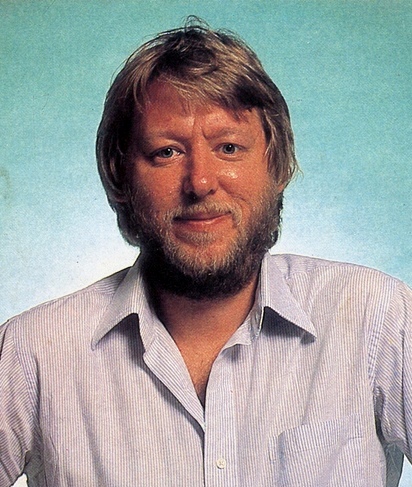
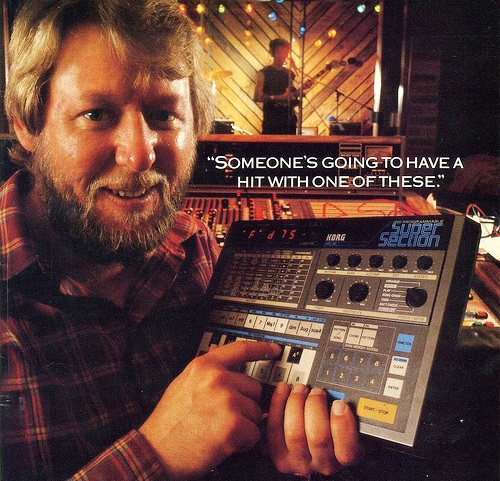
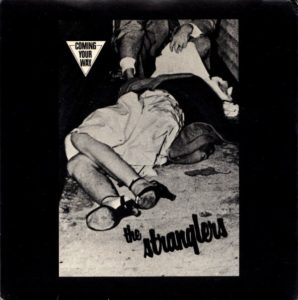
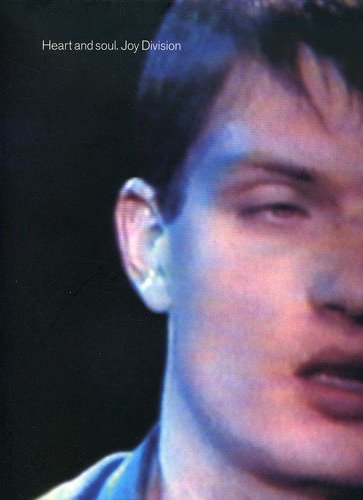
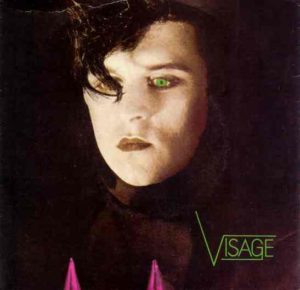
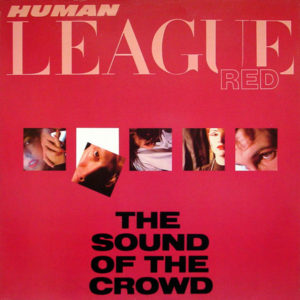
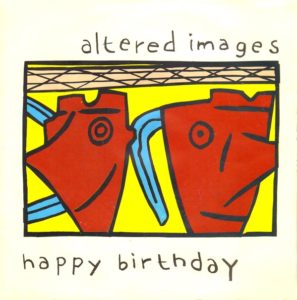
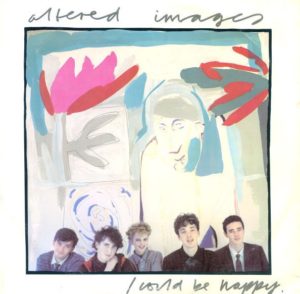
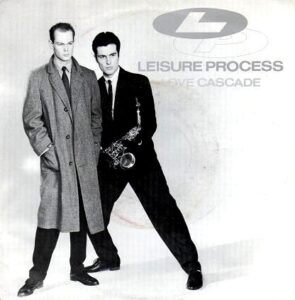
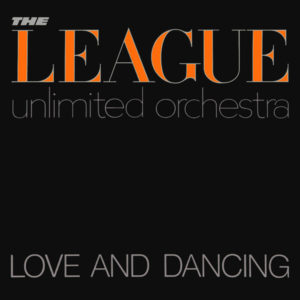
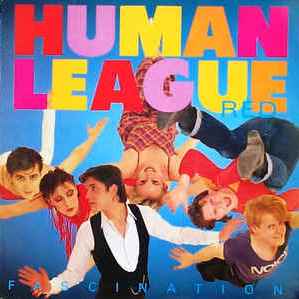
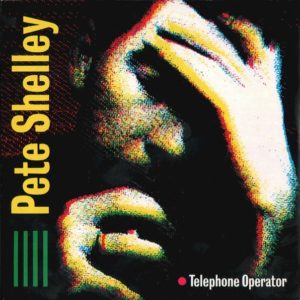
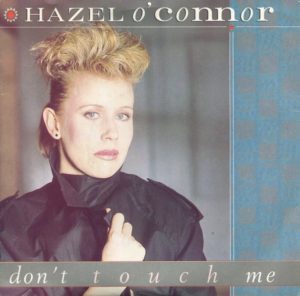
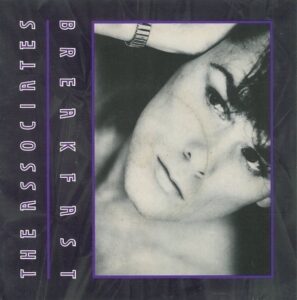

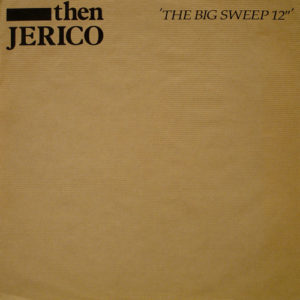
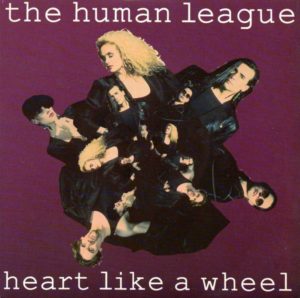
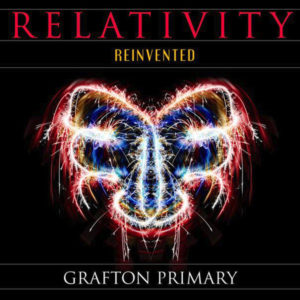
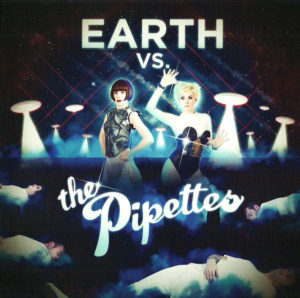
Follow Us!